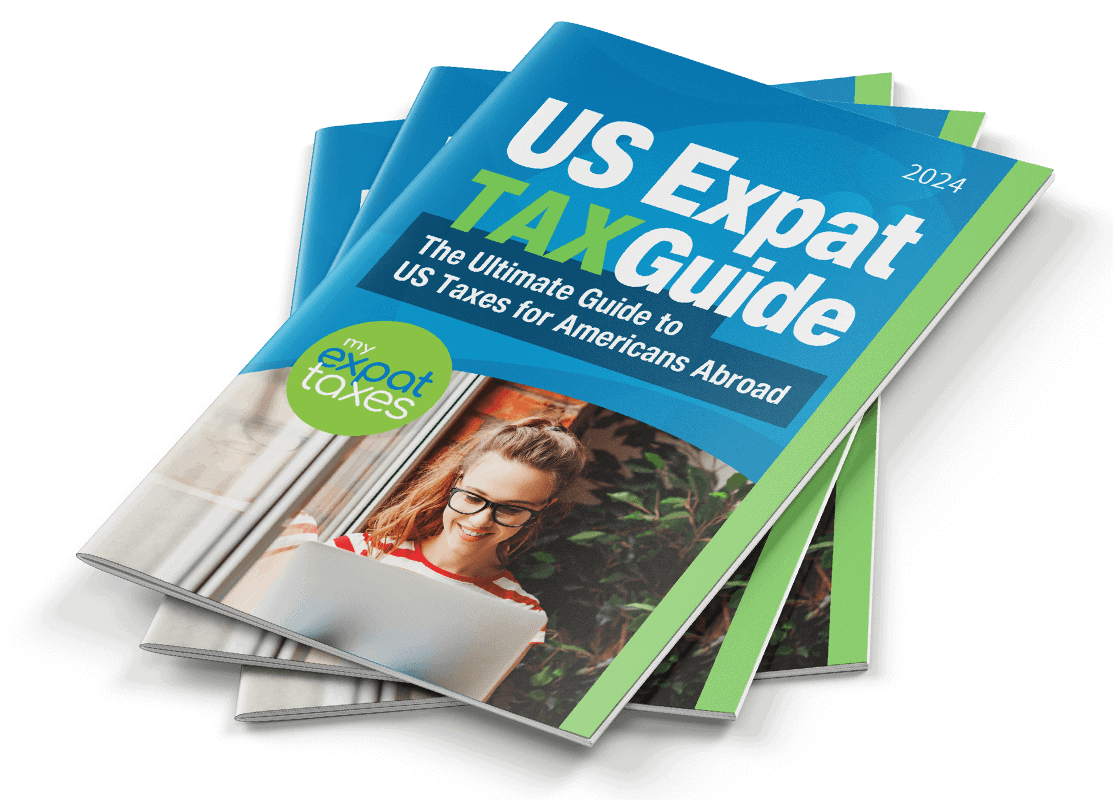FATCA and Foreign Bank Account Compliance for Expats
September 24, 2024 | ExpatTaxGuide | 3 minute read
Expat Tax Guide | Everything you need to know about filing taxes abroad in 2025
 Verified by IRS Enrolled Agents and CPAs
Verified by IRS Enrolled Agents and CPAs
Every foreign bank account you open as an American abroad means you have a connection to the FATCA law, otherwise known as the Foreign Account Tax Compliance Act. This law allows the US Department of Treasury to access your bank account to ensure no illegal activity. If you have over $10,000 in total from all of your foreign bank accounts at any one time during the year, you’ll also need to fill out an FBAR.
Your Foreign Bank Account and FATCA
FATCA stands for the Foreign Account Tax Compliance Act. This federal law requires foreign financial institutions, like banks, to report back the data of US account holders while also requiring US citizens to disclose this information themselves. It’s a means to prevent illegal money laundering abroad.
Every foreign bank that allows a US American to open an account must be able to comply with the FATCA laws. This means it is possible to face rejection from a foreign bank because you are a US citizen, and the bank does not want involvement with FATCA.
If the foreign bank allows you, a US citizen, to open an account, you must fill out and sign plenty of paperwork. Some forms you will sign give the US Department of Treasury access to peek into your account. It is a standard procedure we US expats must become familiar with.
You are currently viewing a placeholder content from YouTube. To access the actual content, click the button below. Please note that doing so will share data with third-party providers.
More InformationForm 8938
Under the FATCA law, you must fill out Form 8938 if the total value of all your specified foreign financial assets in which you have an interest exceeds the appropriate reporting threshold. The threshold starts at $200,000 for US taxpayers living abroad who file as single or separately from their spouse. The filing thresholds double if you are filing with your spouse.
According to the IRS, taxpayers living abroad must file Form 8938 if they file an income tax return and…
- Are married and filing a joint income tax return with the total value of specified foreign financial assets being more than $400,000 on the last day of the tax year or more than $600,000 at any time during the year. These thresholds also apply if only one spouse resides abroad. Married individuals who file a joint income tax return for the tax year will file a single Form 8938 that reports all of the specified foreign financial assets in which either spouse has an interest.
- OR you are not a married person filing a joint income tax return, and the total value of your specified foreign financial assets is more than $200,000 on the last day of the tax year or more than $300,000 at any time during the year. Source: IRS
Learn more about which forms you must fill out for the FATCA from this post, “The FATCA for Americans Abroad.”
The FBAR and Its Importance
You are currently viewing a placeholder content from YouTube. To access the actual content, click the button below. Please note that doing so will share data with third-party providers.
More InformationThe FBAR stands for the Foreign Bank Account Report. It’s a form that US Americans abroad must fill out if they have a bank (or any other financial) account established overseas. This is purely an informative form, and you shouldn’t be taxed on your foreign bank accounts. The FBAR is strictly informational for the US tax authorities and is operated by the Financial Crimes Enforcement Network (FinCEN), which is part of the US Department of Treasury.
How do you determine whether you need to file an FBAR or not?
You must check your bank statements as long as you have a foreign bank account as an American abroad. An FBAR is a requirement every year if you have a total of over $10,000 from all your foreign financial accounts at any time during the year. If you had $10,010 for one day, you still need to file an FBAR. Submit the FBAR via the BSA E-filing system or, better yet – through the MyExpatTaxes software!
The FBAR is due on April 15th every year to coincide with the tax date for Americans both inland and overseas. However, if you missed the filing date, there is no reason to stress. The FBAR has an automatic extension for expats to file until October 15th of that tax year.
What if I Don’t Need to File Taxes? Do I still need to file an FBAR?
Yes! Even if you don’t meet the requirements to file a US tax return, you are still obligated to file an FBAR if you meet the $10,000 minimum account balance. Thankfully, MyExpatTaxes has launched MyExpatFBAR to make filing your FBAR online easy!
Completing Your FBAR
To file successfully, you’ll need Form 114, the Report of Foreign Bank and Financial Accounts. The FBAR is already included in the MyExpatTaxes flat fee of €149 per year with your federal tax return.
The FBAR can be a daunting form, so we want to make it easier for you and encourage you to sign up through our app and file electronically. Our support team can assist you every step of the way.
Tax Guide Topics
Search Tax Guide
Stimulus Checks for Americans Abroad in 2025
Are you an American living abroad? You might have heard about the stimulus checks handed out during COVID-19. These checks acted as a financial relief to many American families. In…
Read More ...Self-Employment Taxes for Americans Living Abroad
Self-Employment Taxes for US Expats in If you are your own boss and have control over the services you provide, you are considered self-employed, and the income earned from these…
Read More ...US Tax Support for Americans Retiring Abroad
Retired or Planning to Retire in ? If you are an expat planning your retirement, you need to know that Americans in the US and abroad can gain retiree support…
Read More ...US Expats Tax Basics
It’s , and that means the US tax season is in full swing. We at MyExpatTaxes want to ensure that you, as an American abroad (expat), are in the know…
Read More ...Expat Tax Benefits for Americans Living Abroad
Avoid Double Taxation from These Expat Tax Benefits Double taxation happens when you have to pay taxes on the same income twice. For example, you could be working as a…
Read More ...Getting Help with Unfiled Tax Returns as US Expat
Have you missed more than a few tax returns since moving abroad? If so, you’ll have a stack of unfiled returns that require your attention. Let’s say you forgot or…
Read More ...Only our best expat tax tips to your inbox.
"*" indicates required fields


